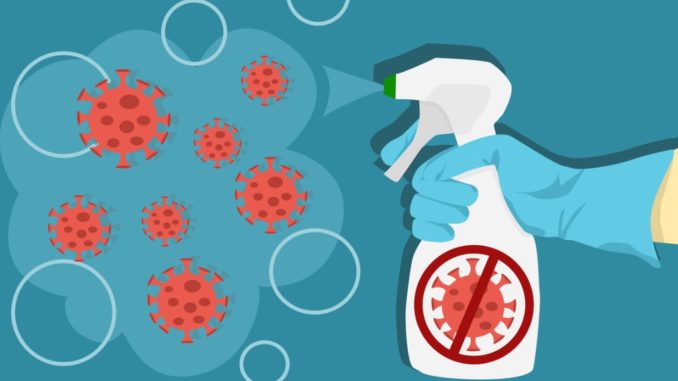
Several practices do not have stringent enough infection control programmes according to the CQC. What should practices be doing to fulfil CQC infection control criteria in the shadow of the COVID-19?
With COVID-19 evolving into an ever more urgent pandemic, it is now more vital than ever for practice managers to revise their infection control management procedures so that viruses can’t spread easily within practice walls.
The Health and Social Care Act (2008) code of practice on the prevention and control of infections and related guidance (revised 2015) outlines the role of infection prevention, including cleanliness, optimising antimicrobial use and reducing antimicrobial resistance. In addition to this, infection control is one of the priorities in any CQC inspection under Regulation 12 of the Act. The CQC expects each practice to have:
- a named lead for infection control (IC);
- an up-to-date IC policy;
- evidence of an annual IC audit;
- evidence of recent IC training, including staff training around hand-washing, handling specimens, waste management, needle stick injuries, appropriate storage and disposal of sharp objects, how to dispose of urine specimens and how to clean equipment and medical rooms.
Infection control lead
As practice manager, you may be the infection control lead in your practice; the IC lead might also be one of the practice partners or a practice nurse. It is your job, as practice manager, to ensure the IC lead is the most appropriate person for the role and that they are fully briefed on infection control expectations in general practice. Practice managers, if they are not the IC lead themselves, will offer close guidance, monitoring and support to the practice IC lead.
The IC lead acts as the link between your practice and your CQC infection control team; they will be the first point of contact for practice staff in respect of infection control issues. Patient safety is their primary concern, and maintaining a safe practice environment is crucial to the success of their role.
The IC lead will:
- help to raise awareness of infection control issues amongst staff and patients;
- help to motivate staff to improve practice;
- improve local implementation of infection control policies;
- ensure infection control audits are carried out to a high standard;
- assist in the training and education of colleagues;
- spot infection control problems and come up with innovative, practice-specific solutions to solve them;
- escalate issues deemed to be outside of their expertise or control;
- act as a general role model within the practice.
Infection control audits or risk assessments
An infection control audit or risk assessment is the process of proactively guarding general practice against the spread of diseases by identifying and applying controls for any possible sources of infection. Sources of infection include, but are not limited to:
- Overcrowding or densely populated waiting areas .
- Staff health.
- Poor hand hygiene of patients and staff.
- Inadequate equipment cleaning / decontamination.
- Sharps management and transmission of blood borne viruses.
- Specimen-handling.
- Clinical waste segregation and management.
- Environmental cleaning and blood / bodily fluid spillages management.
As well as documenting how your practice is tackling the above sources of infection, an audit should cover your surgery’s IC programme, including a practice’s IC policies and how staff are being empowered and trained in the best IC practices. An audit should also outline a practice’s hygiene management processes, including hand hygiene, proper usage of personal protective equipment (PPE), and the proper disinfection of objects or rooms.
The CQC will examine your practice’s most recent audit during inspection; it is important it is up-to-date, comprehensive and meticulous. Ensuring your practice’s IC is of CQC standard is not something you can audit occasionally and then forget about; audits should be re-done at least annually, to monitor changing infection risks in your practice, and should be updated if there are any significant changes to infection risk or management within that time.
Training
The IC lead should make sure that all staff are trained annually; however, training may be needed more frequently if you have a high turnover of staff, and all new staff need an IC induction.
For more information on infection control in general practice, visit Wessex LMC’s wesbite.
COVID-19 infection control
Infection control advice for coronavirus is evolving as the situation does. Currently, it is based on the reasonable assumption that the transmission characteristics of COVID-19 are similar to those of the 2003 SARS-CoV outbreak.
COVID-19 is most likely spread via droplet and contact; this means that coronavirus is spread when respiratory droplets, generated by coughing and sneezing, are breathed in and/ or when someone touches a contaminated surface and then ingests the virus through their mouth, nose or eyes.
The government has released a document, COVID-19: Guidance for infection prevention and control in healthcare settings, which offers the following, specific advice for primary care and general practice.
- Suspected COVID-19 patients should be segregated in place or time from other patients.
- Place: this may be achieved by creating a separate area within the facility for the care of suspected patients, including separate waiting and reception areas if possible. The area should be separated from non-segregated areas by closed doors. To control entry, signage should be displayed warning of the segregated area.
- Time: alternatively, if premises do not permit the allocation of an isolation area, suspected patients should be seen at a different time from other patients, with disinfection of shared areas taking place between different clinics.
- GP practices may make arrangement for distinct COVID-19 and non-COVID-19 clinics. Non-essential GP clinics may need to be cancelled to enable this.
- Primary care staff should, wherever possible, be allocated to either COVID-19 or other patients.
For more information on COVID-19 and infection control, the full document can be accessed here.
Now more than ever, a faultless infection control programme is paramount to the health of your patients and employees. Whether you have an impending CQC inspection or not, the stringency and efficacy of your practice’s infection control may carry huge consequences for both your staff and patients; revising your infection control programme now, in light of COVID-19, may make all the difference.


Be the first to comment